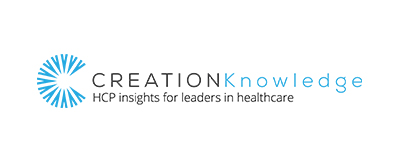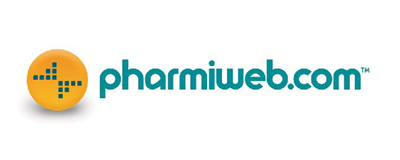14 June 2021
|
2.30 pm
2.45 pm
|
Welcome Day 1
|
2.45 pm
3.20 pm
|
Transition from EU-QPPV office to International QPPV Office
Nina Sagbana
- Independent Pharmacovigilance Consultant
The internationalization of Good Vigilance Practice (GVP) i.e. adoption of the GVP by several countries/regions has led to local/regional GVP legislation largely based on EU PV regulations. As a result of this, there is a need for a transition from the EU QPPV office to International QPPV office for oversight of the safety profiles of a company’s medicinal products and any emerging safety concerns, and coordinate communication to competent authorities.
A look at the current COVID-19 vaccination programs around the world which have resulted in the identification of certain vaccine safety-related issues also presents an ideal scenario for transition from the EU QPPV office to International QPPV office in the pharmaceutical industry. Identified safety issues are likely to have a global impact with possible consequences as more and more health authorities around the world collaborate to assess the benefit-risk balance of medicinal products. In addition, regional PV systems need to be implemented or updated and oversight mechanisms implemented. The role of the QPPV office in an organization will no longer be focused on the EU only as a cohesive international assessment and response is now required.
|
3.20 pm
3.55 pm
|
From EU to International PSMF
Willemijn van der Spuij
- Executive Director Europe, Patient Safety at Bristol Myers Squibb
The presentation will explore the evolution of the PSMF since its introduction in the EU and its subsequent implementation in many other countries and regions: The current global PSMF landscape and requirements will be presented and challenges across the world will be considered; how manage a global document that is subject to local requirements and regulators review.
Practical solutions to simplify work will be explored through the discussion of an expert paper developed by a small expert group.
|
3.55 pm
4.10 pm
|
Coffee Break
|
4.10 pm
4.45 pm
|
Inspection and Quality Aspects' Challenges under the new Legislation Era
Ranjana Khanna
- Global Director PV QA, BeiGene Switzerland GmbH
The 2012 GVP legislation brought a big change in the quality expectations relevant for Pharmacovigilance activities. Previously PV tasks included quality aspects that were an adaptation from GCP and GMP legislation. Stringent requirements related to quality processes, training, auditing and associated topics such as deviation and CAPA management needed to be implemented. Pharmaceutical companies were required to streamline processes and setup new departments such as PV QA to meet the expectations. Dedicated PV staff were trained to successfully implement the quality requirements of the legislation.
Post GVP roll out era, EU Health authorities have shifted the focus in their inspections to the quality requirements laid out in the legislation. An almost 30% weightage is given to quality topics in the interviews and document reviews. From developing the risk based audit universe for PV and considering all interfaces, be it Market research vendors or PASS programmes: inspectors review the critical risk factors used to develop the annual audit programme ensuring the judgement made by the company is focusing on patient safety. The implementation of corrective actions and their effectiveness checks need to be demonstrable.
Slowly other countries that have followed Europe’s footsteps in implementing the GVP, like Australia or Eurasian Union are also paying great emphasis to the PV quality standards followed by the companies. In this presentation, Ranjana shares some challenges seen in her many years of experience in GVP audits and inspections.
|
4.45 pm
5.00 pm
|
Conclusion Day 1
|
15 June 2021
|
2.00 pm
2.15 pm
|
Welcome Day 2
|
2.15 pm
3.15 pm
|
Roundtable | GVP-like legislation outside the EU: overlap and differences
Lidia Maksyutkina
- Regional Pharmacovigilance Manager, Russia and CIS at Biomapas
Mina George Awad
- Pharmacovigilance Manager and QPPV, Middle East at Kyowa Kirin International
J Vijay Venkatraman
- Managing Director & CEO at Oviya MedSafe
John Barber
- Managing Director and Lead Consultant at Plain Pharma Consulting
With the ever-expanding PV legislations worldwide, many countries and regions choose to adopt rules that are comparable to European Union’s Good Pharmacovigilance Practice (GVP) modules, but not always necessarily 100% the same.
For example: when operating in countries in Middle East/North Africa the Arab GVP applies, and when operating in Russia, Armenia, Belarus, Kazakhstan and Kyrgyzstan, the EAEU GVP applies. In addition, there may be specific national requirements or other local expectations.
In this roundtable, we start from our European angle and will discuss with QPPVs from EAEU and Arab regions what the regional differences and stages of implementation are, and what this means in practice.
We will have both Indian and UK points of view as well.
And we ask for your questions and suggestions too!
|
3.15 pm
3.30 pm
|
Roundtable Q&A and Discussion
|
3.30 pm
3.45 pm
|
Coffee Break
|
3.45 pm
4.20 pm
|
Establish PV systems in USA: Points to consider
Kristina Keeler
- Senior Director of Global Safety Operations at Drug Safety Navigator (DSN)
Building and launching a high-performing PV system in the US that meets the strict standards for regulatory compliance requires extensive planning. There are several points to consider when establishing your PV system including managing PV vendors, understanding unique FDA requirements, and utilizing marketing data (sales force roll out, drug distribution, patient assistance programs, marketing partners, etc.) to ensure appropriate PV budgeted activities are in place.
DSN shares key best practices for success that the team has learned through first-hand experience on numerous PV engagements in the US.
|
4.20 pm
4.30 pm
|
Conclusion Day 2
|
16 June 2021
|
2.00 pm
2.15 pm
|
Welcome Day 3
|
2.15 pm
2.50 pm
|
Distributed database network for post-marketing surveillance of drugs: the Italian experience
Gianluca Trifirò
- Full Professor of Pharmacology at University of Verona
Large volume of electronic healthcare data is increasingly available worldwide and many healthcare databases have been already used since decade to address questions regarding pattern of use, safety and effectiveness of medicines in real world setting.
In several Countries, distributed database networks have been created with the final goal to support informed drug regulatory decision making. Examples include FDA endorsed Sentinel and Canadian CNODES which allows scientific community in synergy with national regulatory agency to rapidly address research questions concerning real world use of drugs by accessing and analysing large scale healthcare data infrastructure generally adopting common data model (CDM).
Italy is also rich of healthcare databases and a number of projects have been funded to set up data infrastructure through linkage of different Regional claims databases and clinical registries using ad hoc CDM for post-marketing surveillance of specific medicines (e.g. biologics) and populations (post-transplant patients or those with autoimmune disease).
In this presentation, strategies for developing such distributed database networks as well as potential and limitations for post-marketing surveillance of drugs using this large scale data infrastructures will be in general discussed and practical applications from Italy will be specifically presented.
|
2.50 pm
3.25 pm
|
Oversight of PV System: Quality Parameters and KPIs
Marie-Charbel El Chalouhi
- International Pharmacovigilance Operational Excellence Lead & EEMEA Pharmacovigilance Point of Contact at Abbvie Inc
The highly changing internal and external landscape is driving the need for pharmacovigilance to evolve, in order to maximize the value to our patients. Over the past 10 years we have seen a rapidly changing regulatory landscape that is both increasing in its complexity and in its specificity to a country. As a result of the highly complex environment we all operate in, the success of an organization is highly dependent on monitoring the performance of our systems via targeted metrics & KPIs and setting the right process for periodic and structured reviews of the overall business process health with a possibility for escalation of concerns, opportunities and vulnerabilities. The main objective is to ensure that our metrics are driving actions and that our decision-making is documented in an efficient and retrievable way.
With our digital world, the full use of digital capabilities to support all aspects of pharmacovigilance including compliance monitoring of system performance via automated dashboard will support the focus of human resources on activities with the greatest patient safety impact and will allow flexible metric analysis.
All in All, maintaining oversight of Pharmacovigilance System performance and anticipating change is important to:
• Monitor the current PV system performance in a proactive manner
• Detect areas of non-conformities and act to address these
• Get ready for new projects/actions that result from a change in PV requirements
• Provide management and affiliate colleagues with key information (e.g. on compliance, case volumes) for planning and resourcing discussions
|
3.25 pm
3.40 pm
|
Coffee Break
|
3.40 pm
4.15 pm
|
Pharmacovigilance outsourcing and oversight
Andras Berta
- CEO and Principal Consultant at StratoServ Sciences AG
Despite the multi-decade maturity of this topic there are some trends which are worthy of careful consideration as they could lead to ground-breaking changes to the face of Business Process Outsourcing in PV. Is the industry still happy and settled with large offshored outsourced operations? Do we get all the value out of these many times demanding inter-company relationships? Is there a next level we can reach in the collaboration? Has outsourcing changed industry itself and how we work? Or is there a reality coming for something quite different?
What if at your large restaurant the ingredient processing and food creating technologies are changed rapidly in front of your eyes, making many of the more basic roles in your kitchen obsolete? What if the machine is coming up with better and better recipes, the automation is doing most of the cooking? How does that change what your classical cooks and sous-chefs will have to be adding on? Will your waiters have to serve differently? Will your customers be able to digest and reach satisfaction?
What if a global event, like a pandemic in addition changes the whole dining and restaurant scene? What if your guests suddenly stay at home and start demonstrating totally different consumption patterns, when your events become remote, when catering needs to be done also at home, when your expensive ingredients from far away stop coming, or get spoiled along the way stuck in a container in the Suez Channel? What cooks can do in home-office, who will pay for their broadband and will all your waiters need to get a driver’s licence?
This presentation will be outlining a potential brave new world that pharmaceutical patient safety organisations as well as their CRO partners will have to be actively shaping as well as adopting to.
|
4.15 pm
4.30 pm
|
Conclusion Day 3
|
17 June 2021
|
2.00 pm
2.15 pm
|
Welcome Day 4
|
2.15 pm
2.50 pm
|
Black spots in an end to end digital platform project: the non-technical considerations
Claudia Lehmann
- Vice President of Global Patient Safety & Pharmacovigilance Operations & Systems at Boehringer Ingelheim
While we tend to focus on functionality, performance, security, architecture etc. in a technical project of implementing an end to end digital platform for PV operations, the introduction of automation at a large scale must not neglect topics such as the general intent of why we introduce the platform, the process revamp from manual to digital and of course change management with everyone involved, including users and partners in the end to end process.
The presentation will address many of these factors and share guiding principles for decision making around many of the steps. Personal learnings will be discussed, and some examples will be shared.
|
2.50 pm
3.25 pm
|
Artificial Intelligence for conversation automation
Laimonas Sutkus
- Chief Technology Officer at Biomapas
The information explosion in the pharma industry has not only created new challenges but also created new opportunities. The most clearly seen opportunity is the most data-hungry one – the A.I.-based automation. We will discuss one of the most complex A.I. fields – the Natural Language Processing field and its potential to automate conversations in the pharma industry e.g. Medical Information. We will touch on the challenges, use cases, benefits, existing solutions and new solutions
|
3.25 pm
3.40 pm
|
Coffee Break
|
3.40 pm
4.15 pm
|
Effect of Covid-19 situation on digital transformation
Richard Wolf
- Executive Director, Pv Operations Head in the Global Clinical Safety and Pharmacovigilance group at CSL Behring
Covid 19 has driven impacts in many different areas, and Pv is no exception. During this session we’ll discuss the pragmatic impacts impacting day to day work, as well as some unanticipated and positive impacts that have driven performance improvement across this space as well as rapid uptake of certain aspects of the digital transformation.
|
4.15 pm
4.30 pm
|
Conclusion Day 4
|
18 June 2021
|
2.00 pm
2.15 pm
|
Welcome Day 5
|
2.15 pm
2.50 pm
|
Safety aspects of Covid-19 vaccines
Mihai Alexandru Bica
- Director, Clinical Safety Physician, Department Global Clinical Safety and Pharmacovigilance at CSL Behring
Covid-19, the first alarming pandemic of the third millennium, has caused global public health and economic crises, necessitating rapid development of vaccines. The world-wide response has been unprecedented with government, academic, and private partnerships working together, rapidly exchanging information and ultimately changing the traditional, lengthy approaches in vaccinology with new emerging technologies offering a promising solution for a faster and more flexible development of vaccine candidates that will positively change the global pandemic preparedness strategy.
The monitoring of adverse reactions associated with vaccination is one of the most important factors in vaccine safety. Although vaccines are among the safest medicines on the market, vaccines are not completely risk-free, and adverse events may occur following vaccination. Careful assessment of any adverse events following immunisation is essential to distinguish those that are causally linked to the vaccination from those just coincident in time, in order to prevent vaccine distrust or misperception and to ensure an efficient vaccination campaign especially in the context of a global pandemic.
The objective of this presentation is to critically review the most up to date available safety data on different Covid-19 vaccine candidates, understanding their specifications from the mode of action to effectiveness in the context of a challenging global vaccination campaign.
|
2.50 pm
3.25 pm
|
The impact of COVID-19 on cancer patients in Europe
Antonella Cardone
- Director of European Cancer Patient Coalition (ECPC)
The COVID-19 pandemic has severely disrupted cancer detection and care services globally. Cancer screening and early detection services were suspended in many countries and there are gaps in our knowledge of COVID-19’s impact on cancer care. Delays in cancer treatment and impaired continuity of cancer care have been reported. These delays and interruptions in treatment can be detrimental for the patients as well as distressing also for their carers.
The COVID-19 pandemic has further emphasized equipment shortages, issues concerning the delivery of cancer care, medicine and product shortages in particular. This is a global problem for the treatment of many diseases including cancer.
|
3.25 pm
3.50 pm
|
COVID-19: the role of patients in pharmacovigilance
François Houÿez
- Treatment Information and Access Director, Health Policy Advisor at European Organisation for Rare Diseases (Eurordis)
|
3.50 pm
4.00 pm
|
Coffee Break
|
4.00 pm
4.35 pm
|
PV – did you know? – interactive close-out
Olga Asimaki
- International QPPV at Biomapas
Martijn van de Leur
- Head of Global Pharmacovigilance at Biomapas
In this last session of the conference, Martijn van de Leur and Olga Asimaki invite you to participate in a highly interactive session on various pharmacovigilance topics. With everyone’s support, including speakers’ involvement, they will guide you through a variety of interesting facts. To test your knowledge, trigger some last discussions, interact with each other, or simply as food for thought. Also, they will close out the International PhV Days by reflecting on some of the key messages learned. All in a fun and constructive way, as after all, attending through a screen can easily get exhausting… But instead, LS Academy aims to leave you inspired, energized, and socialized!
|
4.35 pm
4.45 pm
|
Conclusion Day 5
|






